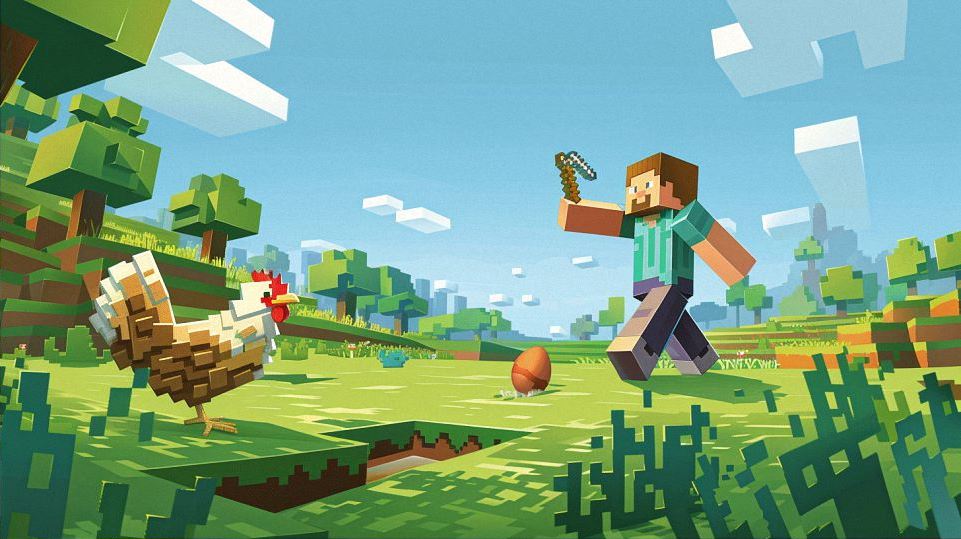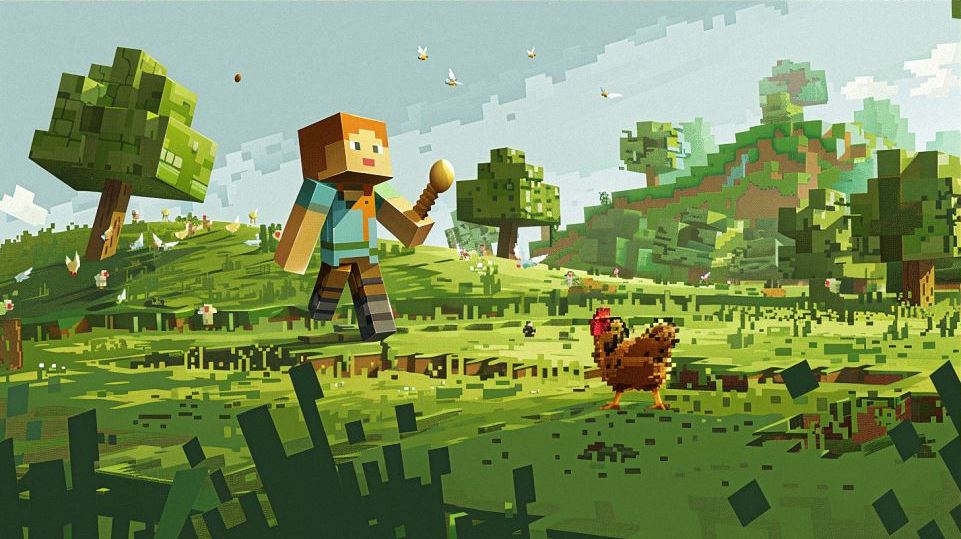How to Get an Egg in Minecraft: Ultimate Guide

Finding and Collecting Eggs in Minecraft
Locating Chickens: Where to Find Them
When you’re figuring out how to get an egg in Minecraft, the first step is locating chickens. Chickens are the key to your egg hunt since they’re the only mob that lays eggs. So, where can you find them?
Contents
ToggleChickens naturally spawn in grassy biomes, which include plains, forests, and jungle edges. These areas are lush and green, making them the perfect habitat for our feathered friends. If you’re wandering through these biomes during the day, keep an eye out for groups of chickens pecking around.
Pro Tip: Chickens are more commonly found in the day because hostile mobs like zombies and skeletons spawn less frequently. If you’re having trouble spotting them, try clearing tall grass, as this can sometimes hide chickens from view.
Once you find a chicken, don’t let it wander off. You can lure it with seeds (wheat seeds, beetroot seeds, melon seeds, or pumpkin seeds). Hold the seeds in your hand, and the chickens will follow you. This trick is useful for gathering multiple chickens and leading them back to your base.
Creating a Safe Chicken Farm: Step-by-Step Guide
Building a chicken farm is essential for a steady supply of eggs. Here’s a step-by-step guide to creating a safe and efficient farm:
Step 1: Gather Materials
You’ll need the following materials:
- Fences (at least 20)
- Fence gate (1)
- Seeds (for luring chickens)
- Water bucket (optional, for an advanced farm)
Step 2: Choose a Location
Find a flat area close to your base. This makes it easier to manage your farm and collect eggs regularly.
Step 3: Build the Enclosure
Create a fenced area large enough to hold several chickens. Place the fence gate on one side for easy access. Make sure the enclosure is secure so chickens can’t escape and no predators can get in.
Step 4: Lure Chickens
Use the seeds to lure at least two chickens into the enclosure. Once inside, close the gate. The more chickens you have, the more eggs you’ll collect.
Step 5: Optional – Water Flow System
For an advanced farm, you can create a water flow system to gather eggs automatically. Dig a trench around the perimeter of your enclosure and fill it with water, directing the flow towards a collection point. Place hoppers at the end of the flow to collect eggs and deposit them into a chest.
Encouraging Egg Laying: Tips and Tricks
Now that you have your chickens secured, it’s time to maximize egg production. Here are some tips to encourage your chickens to lay more eggs:
Tip 1: Increase Chicken Population
The more chickens you have, the more eggs you’ll get. Breed chickens by feeding them seeds. Each pair of chickens will produce a chick, which grows into an egg-laying adult in about 20 minutes.
Tip 2: Maintain a Well-Lit Area
Chickens need a well-lit environment to feel safe and comfortable. Make sure your farm has plenty of light, especially if it’s an indoor farm. Use torches or glowstone to keep the area bright.
Tip 3: Regular Collection
Chickens lay eggs every 5-10 minutes. Check your farm regularly to collect the eggs. If you’re using a water flow system with hoppers, simply empty the chest periodically.
Tip 4: Keep Predators Away
Ensure that your farm is secure from predators like foxes, which can kill chickens. Double-check that your fences are high enough and consider placing your farm within a larger, secure compound.
Fun Fact: You can throw eggs to spawn baby chickens. It’s a fun way to surprise your friends or quickly increase your chicken population!
By following these steps and tips, you’ll become a master at how to get an egg in Minecraft. Happy farming, and may your egg baskets always be full!

Using Eggs for Various Purposes
Crafting Recipes That Use Eggs
Eggs in Minecraft aren’t just for show—they’re actually quite versatile! One of their primary uses is in crafting recipes, making them essential for a variety of items.
Pumpkin Pie
Who doesn’t love a good pumpkin pie? In Minecraft, you can craft this tasty treat using:
- 1 Pumpkin
- 1 Sugar
- 1 Egg
To craft pumpkin pie, simply place these items in your crafting grid. Pumpkin pie is a great food item, restoring 8 hunger points. Perfect for those long mining expeditions!
Cake
Want to celebrate a special occasion in-game? Craft a cake! The recipe requires:
- 3 Buckets of Milk
- 2 Sugar
- 1 Egg
- 3 Wheat
Arrange these ingredients in your crafting table to create a cake. Cakes are unique because they can be placed and eaten slice by slice, each slice restoring 2 hunger points.
Beetroot Soup (Java Edition)
In the Java Edition, eggs can be used in the beetroot soup recipe:
- 6 Beetroots
- 1 Egg
This soup restores 6 hunger points, making it a nutritious option for survival mode.
Hatching Chickens: How to Use Eggs for Breeding
If you’re looking to expand your chicken farm, hatching chickens from eggs is a fun and practical way to do it.
Throwing Eggs
Throwing eggs has a chance to spawn a baby chicken. The chance is 1 in 8 (12.5%), and occasionally, you might get lucky and hatch four chicks at once, which has a 1 in 256 chance (0.4%).
Breeding Chickens
For more consistent results, you can breed chickens using seeds. Feed seeds to two adult chickens, and they’ll enter love mode, producing a baby chick. It takes about 20 minutes for the chick to grow into an adult, but you can speed up the process by feeding it more seeds.
Incubation Area
Create a small, enclosed space where you can throw eggs without losing track of the chicks. This area should be well-lit and secure from predators. As your chicks grow, you can move them to your main chicken farm.
Throwing Eggs: Fun and Practical Uses in the Game
Throwing eggs in Minecraft isn’t just about hatching chicks—there are several fun and practical ways to use them.
PvP and Pranks
Eggs are a great tool for pranks or PvP (player vs. player) combat. While they don’t deal damage, they can knock back opponents and interrupt their actions. This can be especially useful for disrupting a rival’s attack or just having fun with friends.
Building Automatic Farms
Eggs can be used to create automatic chicken farms. By setting up a dispenser to throw eggs into a designated area, you can continuously hatch chickens without manual effort. Combine this with a water flow system and hoppers, and you’ll have a fully automated egg and chicken farm.
Redstone Contraptions
Eggs can also be used in redstone contraptions. For example, you can create an egg cannon using dispensers and redstone. This contraption can launch eggs at a rapid rate, perfect for defense mechanisms or just for fun.
Fun Fact:
Did you know you can also use eggs to break certain blocks like torches and redstone? Throwing eggs at these items can knock them off their place, adding another layer of utility to this versatile item.
By understanding the various uses of eggs in Minecraft, you can enhance your gameplay experience, whether through crafting, breeding, or just having a bit of fun with friends. Keep experimenting, and who knows—you might discover even more creative ways to use those humble eggs!

Advanced Egg Farming Techniques
Automated Egg Farms: Redstone Mechanics and Designs
If you’re looking to boost your egg production in Minecraft without constant manual effort, an automated egg farm is the way to go. Using redstone mechanics, you can create a farm that collects eggs automatically, saving you time and effort.
Basic Redstone Egg Farm Design
A basic automated egg farm uses simple redstone mechanics and a few key components:
- Dispenser
- Hopper
- Chest
- Redstone Dust
- Redstone Comparator
Here’s how to set it up:
- Create a Chicken Enclosure: Build a small, enclosed space where your chickens will stay. Place hoppers on the floor to collect eggs.
- Connect Hoppers to a Chest: Arrange the hoppers so they lead into a chest. This chest will store the collected eggs.
- Set Up a Dispenser: Place a dispenser facing into the chicken enclosure. This will throw the eggs back into the enclosure to hatch more chickens.
- Redstone Circuit: Use a redstone comparator to detect when the chest has eggs. Connect the comparator to the dispenser with redstone dust, creating a circuit that automatically fires the dispenser when eggs are present.
Advanced Design: Fully Automatic Farm
For a more advanced setup, you can use multiple dispensers and a clock circuit to create a fully automated system:
- Multiple Dispensers: Place several dispensers around the enclosure, all connected to a central hopper system.
- Clock Circuit: Use a redstone clock to ensure that dispensers fire at regular intervals. This keeps the farm running smoothly and efficiently.
Increasing Egg Production Rates: Best Practices
Maximizing egg production in Minecraft involves more than just building a good farm. Here are some best practices to ensure your egg farm operates at peak efficiency:
Optimize Chicken Population
The more chickens you have, the more eggs you’ll get. Aim to keep at least 20-30 chickens in your farm. Be careful not to overpopulate, as this can cause lag and other issues.
Use Breeding to Maintain Numbers
Regularly breed your chickens using seeds. This ensures a steady supply of egg-laying chickens. Remember, it takes about 20 minutes for chicks to grow into adults, so plan your breeding cycles accordingly.
Maintain Optimal Conditions
Chickens need a well-lit, secure environment to thrive. Make sure your farm is well-lit with torches or glowstone, and fully enclosed to keep out predators. A comfortable environment encourages more frequent egg-laying.
Automate Collection
Automate egg collection using hoppers and chests. This saves time and ensures you don’t miss any eggs. Regularly check and empty the collection chests to avoid overflow.
Troubleshooting Common Egg Farm Problems
Even the best-laid plans can run into issues. Here are some common problems you might face with your egg farm and how to fix them:
Low Egg Production
If your egg production is lower than expected, check the following:
- Chicken Population: Make sure you have enough chickens. If numbers are low, breed more.
- Lighting: Ensure the farm is well-lit. Chickens need light to feel safe and lay eggs.
- Food Supply: Chickens don’t need constant feeding, but ensure they have enough seeds for breeding.
Chickens Escaping
If chickens are escaping, check for gaps in your enclosure. Use fences and gates to secure the area. Double-check that your hoppers and dispensers aren’t creating escape routes.
Redstone Malfunctions
If your redstone circuits aren’t working properly:
- Check Connections: Ensure all redstone dust and components are correctly placed and connected.
- Power Supply: Make sure the redstone circuit has a constant power source. Use repeaters if needed to maintain signal strength.
- Dispenser Issues: Verify that dispensers are correctly placed and facing the right direction. Ensure they’re loaded with eggs.
By following these advanced egg farming techniques, you can create a highly efficient, automated system that keeps your Minecraft world well-supplied with eggs. Happy farming!


